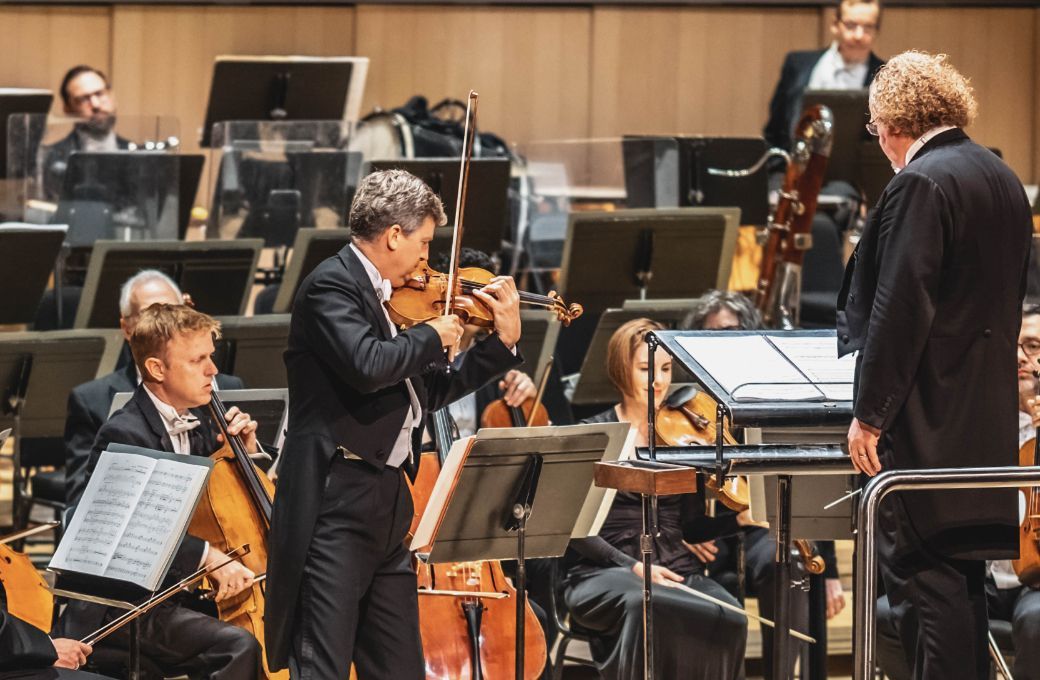It says a lot about how sunny a Toronto Symphony programme this was when Bernstein provided the darkest shades. His 1954 Serenade (after Plato’s Symposium) – a violin concerto in all but name – has no shortage of theatrical, witty characterisation, as we would routinely expect from him, but its contemplation of various protagonists in Plato’s Republic is essentially reserved and thoughtful in its praise of love in all its guises. Its pervading sense of unfussy, purposeful ‘cool’ is also perfectly suited to solo violinist James Ehnes’ elegant musicianship and modesty.

Balance is the key. The opening oration of Phaedrus set didacticism against lyrical quietude, while the fleeting Eryximachus Scherzo brought playfulness and comedy, providing a perfect vehicle for Ehnes’ polished virtuosity. Then came the beating heart of the piece, Agathon, effectively the slow movement, where the tone was at once graceful and passionate: still, yet in perpetual motion, serene, yet exciting. The finale ushered in a splash of jazzy modernism, always entertaining and engaging, but never in danger of crossing the border into vulgarity or self-indulgence. It's not surprising that Denève and Ehnes’ recent recording of the Serenade (with the St Louis Symphony) has been so warmly received.
True to his reputation for generosity, Ehnes offered two encores and no one would have complained had he given us even more. For those familiar with Eugène Ysaÿe’s Violin Sonata no. 3 in D minor, this was surely close to the cleanest rendition ever of this devilishly challenging work. Then, keeping the balance as astutely as Bernstein’s Serenade, the slow movement from Bach’s Third Sonata provided a graceful and noble counterweight.
Words and ideas inspiring music were also at the heart of the opening work on the programme. Guillaume Connesson’s Les Cités de Lovecraft is a tripartite “hallucinatory” symphonic suite, inspired by HP Lovecraft’s short stories, Dream Cycle, and their fascination with childlike wonder and journeys of consciousness-recovery. Stéphane Denève, a regular champion of the 54-year-old French composer, presented Céléphais, its nine-minute first movement, imbued with high-voltage energy and kaleidoscopic orchestration that could easily have been composed by a younger brother of Ravel or indeed a seventh member of Les Six. Firmly rooted in tonal tradition, with hints of jazz here and there, this is ever-renewing, highly effective music that makes no claim to profundity yet never talks down to its audience.
Connesson’s piece was a mirror image for the opening of the second half: the suite from Poulenc’s first ballet, Les Biches. Starting with a playful homage (or maybe grimace) in the direction of Stravinsky, Poulenc quickly goes about his own playful business, resolutely avoiding sentimentality and pathos, even in the most tender and lyric episodes. Denève is completely at home with the idiom, allowing the Toronto Symphony to respond to its chic, quick-witted silliness with sparkle and poise. And it's not hard to hear the influence of Les Six on Gershwin’s masterpiece, An American in Paris. From the nonchalant ‘walking’ theme, to the famous blasts of car horns, to the lush blues themes, this was a brilliant, vivacious performance, with a fine overall sweep but also some delightful details and delicious solos, especially from clarinet and oboe.
No revelations, then, but this was a superbly planned and executed concert, ideal for a glorious early-summer Toronto evening.


